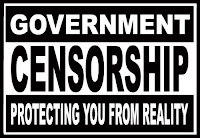Amazon Fights Publishers, Removes Their Books – Ethical Issue?
 |
| via |
Summary
Amazon
is involved in a tug of war with publishers and authors. It has been holding
certain books hostage by delaying shipping, and limiting customers’ ability to
access and order them. The books
are those from publishers such as UK’s Hachette, the fourth-largest publisher,
Germany’s Bonnier Media Group and Macmillan. Amazon also removed its book
discount from titles published by the above, returning the books to list price.
In the process, increasing US price to twice what it is asking from UK
customers.
Amazon
started its business to help customers get access to cheaper books and a large
database at their fingertips. It reduced the list price of books which made Amazon
become the giant corporation it is now. This also edged out brick-and-mortar
bookstores whose books were more expensive of rent tariffs. Amazon’s substantial market share has been giving
authors and publishers concerns, as they fear that Amazon could abuse its considerable power – 65 percent of online book sales,
both digital and print
– one day.
Amazon
is engaged in its present tussle with publishers because of its electronic book
interest. A while back, Hachette and four other major publishers collided with
Apple to force Amazon to shift from its ‘certain units at a fixed price’ buying
model to a ‘commission on each unit’ buying model. The new proposed model would
cut into Amazon’s profit and make it charge a larger price for e-books. For
example, e-books would be priced at twice or triple its old usual cheap charge,
which will undercut Amazon brand’s promise of cheaper books. And, it would have
allowed other retailers to compete more fairly with Amazon. Amazon retaliated
with a suit. The publishers settled with Amazon. Now, Amazon wants the
publisher to lower the amount Amazon pays for e-books.
While
it is easy to accept Amazon’s reason for fighting the publishers, Amazon often
resorts to shady tactics to get what it wants. Only last year did Amazon punish
writers who refuse to give Amazon e-books exclusivity. It cut the royalty of writers
who did not give it exclusivity from the standard 70 percent to 30 percent. And,
when Amazon and Macmillan had a minor and brief falling out in 2010, Amazon
promptly deleted all buy buttons on Macmillan books. Amazon’s tactics often beg
the question of ethics. Is it ethical to flex your muscles and hold an industry
at stand point, just because you can and decide to? As much as I love Amazon,
as a book lover and a writer in progress, I cannot help but think that Amazon
needs to be checked.
Stakeholders
Amazon
and publishers such as Melville House, Hachete and Bonnier Media Group: They’re both
fighting each other, seeking to hold on to their
individual power and seeing the other guy as the bad guy.
Independent
Bookstores:
independent bookstores have been struggling to keep up with Amazon but this is
a plus for them. People can go back to buying books from them. For example, with
the advertised 30 percent discount, Books-a-Million could do just fine if this
power tussle goes on for long, especially if it offers online shopping.
Customers: book lovers
have not being able to get recently released books from their favorite authors.
I know how frustrated I can be when I cannot get a book I want online. I can
count on my fingers the number of times I have stepped into a Barnes and Noble
bookstore, apart from the one in school. When I first transferred to University
of South Florida, I bought my books from USF’s bookstore, cringing each time at
the price. I also hate brick and mortar shopping of any kind, such a time
waster! It was heavens to switch to Amazon and I haven’t looked back yet. I
assume there are other people like me.
The
Authors Guild (TAG) and Germany Publishers and Booksellers Association (GPBA): both have
weighed in on this matter, calling Amazon the bad guy. TAG says Amazon is
acting illegally while GPBA believes Amazon is blackmailing the publishers. What’s
the point of being in a union if it cannot protect your needs? This is why
these two organizations are affected by this fight.
Writers: after the
huddle of getting your book published, the last thing writers need is for an
autocratic retailer to jack up the price and deprive readers of their work. Even
worse is having Amazon refuse to take orders, take down their books or remove
the buy button from their listing. Authors affected include: J.K Rowling who published
The Silkworm under the pen name
Robert Galbraith, Steven Colbert, James Patterson, Nina Laden, and many more. As
for struggling new writers, they won’t fair too well.
Solutions:
Amazon
prides itself from being customer-friendly. It should keep to its words and
stop frustrating its customers. While I don’t have them, there must be other ways
to fight the publishers without dragging customers and writers in the middle. There
is no doubt that it is the latter two who will suffer the most if this fight
continues to go on. Publishers can also pull all their books from Amazon and
take them elsewhere. This would shake up Amazon and force it to play more
fairly.
Streitfeld,
David, and Melissa Eddy. “As Publishers Fight Amazon, Books Vanish.” Bits.Blogs.Nytimes.com
New York Times, 23 May
2014. Web. 24 May 2014. < nyti.ms/1goXL4J>

Comments
Post a Comment